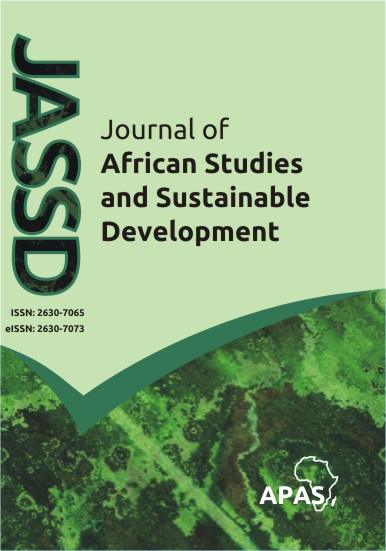 Journal of African Studies and Sustainable Development (JASSD) (Vol. 7 No. 2, 0)
MAINSTREAMING RELIGIOUS HARMONY IN EDUCATIONAL CURRICULUM TO ENGENDER NATIONAL DEVELOPMENT IN NIGERIA
Journal of African Studies and Sustainable Development (JASSD) (Vol. 7 No. 2, 0)
MAINSTREAMING RELIGIOUS HARMONY IN EDUCATIONAL CURRICULUM TO ENGENDER NATIONAL DEVELOPMENT IN NIGERIA
ABSTRACT
National development will continue to be a mirage in the absence of peaceful co-existence among the citizens. The faithful of the two dominant religions in Nigeria i.e. Christianity and Islam have witnessed violence of several degrees over the years which had resulted in maiming, arson, destruction of life and properties. Such situation has hampered the desired development because peace is sine-qua-non to nation building. Unfortunately, out of twenty key points rolled out by the Federal government for national development plan from 2021-2025, religious dialogue is not given any recognition. Variables such as job creation, tourism, reduced cost of production for oil sector, widening tax base, improved government revenue, investment in agricultural sector, and generation of more megawatts of power, strengthening of security and ensuring good governance are prioritized. This paper, therefore, brought to the fore the imperativeness of religious harmony through effective dialogue among adherents of religions which should be incorporated in the curriculum of different levels of education in Nigeria. More so that the current civil education as a subject has become controversial due to its lopsided and discriminatory contents that does not do the nation any good. This paper found out that necessary instruments of teaching religious harmony are yet to be deployed; making it difficult to free indoctrinated minds from fanaticism, extremism and bigotry. The situation has posed a threat to peaceful co-existence which lays the foundation for national development. Historical and phenomenological approaches were employed while primary and secondary modes of data collection were utilized

